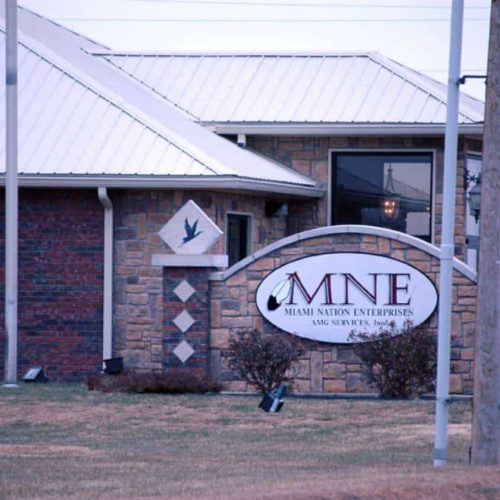Introduction
A six-year legal struggle by Colorado authorities to shutter a business making questionable payday loans over the Internet may soon come to an end.
The battle, highlighted in a recent investigation by iWatch News and CBS News, is over whether a deal cut to sell the payday-loan business to an Indian tribe was merely a sham to give “sovereign immunity” to the business while it was being investigated in several states.
New evidence shows that the Miami tribe of Oklahoma reaps as much as $200,000 per month from payday loans it makes over the Internet, even in states where such loans are illegal.
Yet that’s a pittance compared to the $2 million the tribe’s payday-lending business shells out in some months to the auto-racing team of Scott Tucker, a Kansas millionaire and a minor celebrity in the sport of endurance racing. Tucker competes in races such as the legendary 24 Hours of Le Mans.
As reported by iWatch News, Tucker founded the payday-lending business and continues to work at the company now called AMG Services, managing hundreds of workers in Overland Park, Kan. But Tucker claims he sold the business to the Miami tribe in 2008, at a time when regulators in several states were trying to shut it down.
The tribe’s involvement has stalled state regulatory efforts for years. A California appeals court and the Colorado Supreme Court ruled that if the business is genuinely owned by the tribe, it has “sovereign immunity” and cannot be sued in state courts.
Regulators in both states are now back in state court trying to prove that the tribal ownership claims are a sham known as “rent-a-tribe,” in which a tribe buys an outside company only on paper to shield it from state lawsuits.
Although lawyers have revealed the contents of a number of documents in court, the documents themselves have been sealed and cannot be seen by the public. But evidence presented in court includes new details showing that the tribe received little from the payday lender, despite revenues for the business that ran as high as $20 million per month.
Colorado Deputy Attorney General Jan Zavislan said in a Denver court on Nov. 22 that though Tucker claims now to be only an employee of the payday lending business, he appears to have control of the company’s bank account. Zavislan asked how the tribe could claim to own and operate the business if they allow Tucker to “ransack your AMG Services bank account to the tune of tens of millions of dollars.”
Among the personal expenses paid out of various bank accounts for AMG was the cost of operating Tucker’s $13 million Lear jet, property taxes and other expenses on his $8 million Aspen vacation home, as well as a $22 million settlement of a personal lawsuit against him.
By comparison, the Miami tribe gets only 1 percent of the company’s revenue, far less than Tucker, according to evidence presented at the court hearing.
Tribal affiliations with online payday lending have grown rapidly in recent years.
By one estimate, at least 30 online payday lenders now claim they are not required to adhere to state laws because of their association with Indian tribes. Thousands of borrowers have complained to states and the Better Business Bureau that these loans are misleading and predatory, charging up to 800 percent interest.
AMG Services is now under investigation by the Federal Trade Commission, according to records introduced in court. Sovereign immunity doesn’t bar investigations by federal agencies such as the FTC.
The tribe originally said in court that it was doing business as Cash Advance back in 2005, when Colorado’s investigation first started. However, new records show that the Miami tribe cut a deal with Tucker in June 2008 to pay $120,000 for Tucker’s payday-lending business called CLK Management, which at the time was grossing $16 million to $20 million per month. The company then merged and changed its name to AMG Services.
By comparison, the Selling Source, a Las Vegas company that signs up borrowers online for AMG Services, was bought by the private-equity company London Bay Capital in 2008 for $130 million. The Selling Source was smaller than AMG, with monthly revenues in 2007 of about $10 million.
Zavislan argued that the tribe doesn’t really own AMG Services.
“They lent their name to them and they did nothing more than that in exchange for monthly payments,” he said.
However, attorneys for the Miami tribe said the ownership is real. Attorney Conly Shulte said that while the tribes hire contractors to manage the business, business executives and employees of the Miami tribe as well as the Santee Sioux tribe of Nebraska personally approve thousands of loans each month.
“The reason the board minutes don’t describe any of the day-to-day activities … is because that’s not what board(s) of directors do,” Schulte said. “They govern from the 10,000-foot level.”
District Court Judge Morris Hoffman in Denver asked if a company under investigation could cut a deal to sell itself to an Indian tribe for a small amount and a nominal cut of income just to avoid having to answer subpoenas. Schulte said yes, a business could cut such a deal for sovereign immunity. The amount the tribe pays for the business or the amount of income it agrees to receive is irrelevant, he said.
“The remedy is to go to Congress” to change the sovereign immunity laws, Schulte said.
Zavislan said, “The U.S. Supreme Court has talked about prohibiting, preventing tribal reservations from becoming havens for fugitives. And that’s exactly what would happen if you simply allowed ‘Business A’ to create all kinds of havoc in the real world and then go say, ‘Oops. Sold it to a tribe.’”
The notion that a tribe could “invest in IBM and therefore make IBM immune … is ridiculous,” he said.
The Colorado attorney general began its investigation of the online payday lenders in late 2004, issuing subpoenas to businesses that turned out to be shell companies set up by Tucker. Months later, the Miami tribe appeared in court to say that it was the true owner of a payday lender called Cash Advance, arguing that the state of Colorado had no legal authority to subpoena it.
Zavislan said that new documents, which include email exchanges, show that Tucker went to the tribes in the midst of the investigation to cut a deal. But he said no purchase agreement was actually signed in 2005. He said the new revelations now raise questions about the truthfulness of the tribal officers who filed sworn statements in court.
The case went all the way to the Colorado Supreme Court, which ruled last year that businesses that are arms of a tribe are exempt from court actions and subpoenas. The justices said the burden was on state authorities to prove the business was not a true arm of the tribe before it could issue subpoenas or take any action.
Judge Hoffman is expected to rule on whether the business is an arm of the tribe soon.
Malini Mithal, an official at the FTC, said she couldn’t comment on any pending investigation. However, she said that online payday lending investigations are a high priority at the FTC. Earlier this year, the agency filed a lawsuit against a payday lender claiming to be tribally owned. Mithal said there’s likely to be new cases filed.
Read more in Inequality, Opportunity and Poverty
Debt Deception?
Colo. judge issues new ruling in payday lending case against Indian tribes
Judge admits he ‘misunderstood’ evidence in original decision, but tribes still avoid further prosecution
Debt Deception?
Indian tribes tied to payday lender escape state probe
State AG drops investigation into two tribes accused of shielding online payday lender Scott Tucker



Join the conversation
Show Comments